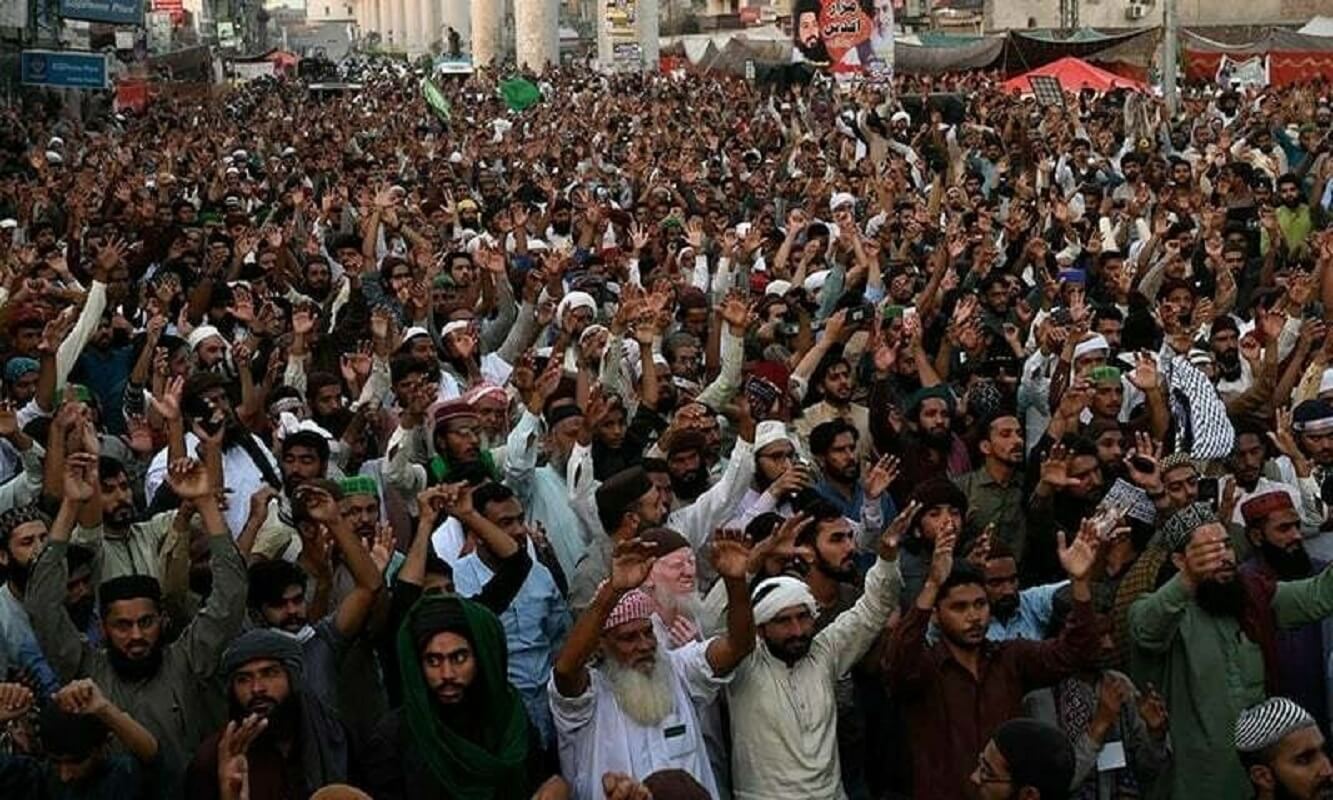Democracy and Nation-Building in Pakistan During Political Instability
Dr. Hussain Shaheed Soherwordi | 27 August 2022
Pakistan inherited a physically unified country with its two wings in 1947. However, it had to build an indigenous nation with a transition from Indian to Pakistani nationalism. Of course, Pakistan was carved out of India and hence it needed to muster a unified sense of belonging amongst its people. Similarly, it imported Western democracy as its system of government, but this comprised of essentially undemocratic political forces – religious, stratified and unelected party leaders in political parties with hereditary trend. It also received genetic (from colonial past) strong non-political institutions called establishment comprising of bureaucracy, judiciary and the military. Thus, Pakistan was in quest of nationalism and democracy as defining features of its existence. Rather, democracy had to build the nation.
After 75 long years of its independence, Pakistan is yet to succeed on either of the fronts. It couldn’t muster strong Pakistani nationalism. Not democracy but dictatorship tried to produce nationalism which lashed back. More and more centrifugal forces kept crumbling state’s basic foundations. The most lethal attack came in the shape of the creation of Bangladesh from the Eastern Wing of united Pakistan. The breakup of the eastern wing must had carried some lessons for the rulers and the ruled. However, as per saying, we learn from history that we do not learn from history, the country is still in quest of forming a strong Pakistani nationalism.
Democracy was eagerly desired by the people of the land but was engulfed by undemocratic and dictatorial forces. Almost every stakeholder has a share in it. Firstly, take an example of religious parties. They never believed in the Westminster system of government. They wanted an Islamic system which in their view was diametrically opposite to egalitarianism. Later, they followed a via-media by following an Islamic democracy in their own view and followed the suit. Till to-date, all religious parties are making an effort to bring Shariah through a democratic system. They have accepted democracy as a system of government to ascend to power and then bring an Islamic system – a paradox.
Secondly, the top leadership of every political party was led by Pakistan elite class. Middle order party command and followers remained from the middle and lower class. A stratified party hierarchy reflected Pakistan’s stratiform society. It also gave birth to hereditary politics- limiting party leadership to a family as a dictator. Even the middle-order party cadre was dominated by inherited young fellows of a few crony goodmen. The substantial middle and lower class of the society just remained followers and merely voters.
Implicit to the above, thirdly, the shabby political party system in Pakistan completely failed to induce intra-party democracy. Almost every party, has a dictatorial party-head trend. No intra-party elections take place and therefore the command of the party is left to a family. The family runs the party with a royal writ. Middle-order leaders don’t have to prove their following and number of followers. Nepotism and flattery are enough to muster party king’s, sorry, party leader’s attention to elevate his/her position to higher ranks.
Finally, and fourthly, colonial trend of the establishment to dominate politics of the country remained a very important feature of Pakistan in its post-colonial era. They had a very inferior notion about Pakistan’s electoral junta. Even former Pakistani President Iskander Mirza of the 1950s said on record that the people of Pakistan are too naive and immature to practice democracy. He, along with his cohorts, was very fond of democracy guided by the Establishment. That was the sole reason for Pakistan’s swift and quick changing of governments and declaration of martial law during initial 11 years (1947-58). Even afterwards, democracy was presented with a suffix- Basic democracy by General Ayub Khan; Equal democracy by General Yahya Khan; Islamic democracy by General Zia and Real democracy by General Pervaiz Musharraf. This also reflects that those dictators used democracy as a means to run their dictatorial and autocratic rule in Pakistan.
In light of above mentioned four trends since independence, the country, today, experiences another tug of war between the judiciary and the parliament. Parliament practices while the judiciary protects (custodian) the constitution. The fight between the practice and protection of the constitution is usually won over by the judiciary- again an unelected body. Supremacy of the decision of the courts is pronounced by the judiciary however, its upheld by a specific segment of elected members of the parliament- another dichotomy. This dichotomy is not new: from (Speaker) President of first Constituent Assembly, Maulvi Tamizuddin case, to the recently pronounced Supreme Court decision in case of deputy speaker of the National Assembly, Qasim Suri’s ruling, decision of the supreme court superseded the parliament and supported by a few goodmen (parliamentarians). The party with a majority in the parliament has to pack up. This also exposes that in Pakistan’s democratic representatives, there are a few with undemocratic spirits. At times, democracy is weakened by the democratic forces.
The above discussion proves that Pakistan practiced democracy in an undemocratic ambiance. Every segment of our polity has its undemocratic disposition in practice. Democracy is more on our lips and less in run-through, another contradiction. Pakistan is a small democratic topping on a large undemocratic cake. With an unconstitutional consensus, Pakistan’s democracy is failing to build a nation – a Pakistani nation.
Dr. Hussain Shaheed Soherwordi is a Professor, Chairman of the Department of International Relations, and former Director of the Institute of Peace and Conflict Studies at the University of Peshawar, Pakistan.
This article was originally published on The Geopolitics.
Views in this article are author’s own and do not necessarily reflect CGS policy.
